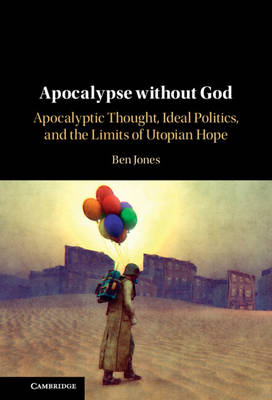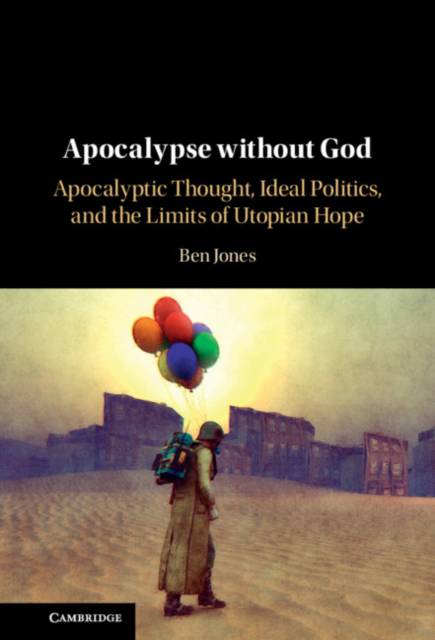
- Afhalen na 1 uur in een winkel met voorraad
- Gratis thuislevering in België vanaf € 30
- Ruim aanbod met 7 miljoen producten
- Afhalen na 1 uur in een winkel met voorraad
- Gratis thuislevering in België vanaf € 30
- Ruim aanbod met 7 miljoen producten
Zoeken
Apocalypse without God
Apocalyptic Thought, Ideal Politics, and the Limits of Utopian Hope
Ben Jones
Hardcover | Engels
€ 144,45
+ 288 punten
Omschrijving
Apocalypse, it seems, is everywhere. Preachers with vast followings proclaim the world's end. Apocalyptic fears grip even the nonreligious amid climate change, pandemics, and threats of nuclear war. As these ideas pervade popular discourse, grasping their logic remains elusive. Ben Jones argues that we can gain insight into apocalyptic thought through secular thinkers. He starts with a puzzle: Why would secular thinkers draw on Christian apocalyptic beliefs - often dismissed as bizarre - to interpret politics? The apocalyptic tradition proves appealing in part because it theorizes a relation between crisis and utopia. Apocalyptic thought points to crisis as the vehicle to bring the previously impossible within reach, offering resources for navigating challenges in ideal theory, which involves imagining the best, most just society. By examining apocalyptic thought's appeal and risks, this study arrives at new insights on the limits of utopian hope. This title is available as open access on Cambridge Core.
Specificaties
Betrokkenen
- Auteur(s):
- Uitgeverij:
Inhoud
- Aantal bladzijden:
- 200
- Taal:
- Engels
Eigenschappen
- Productcode (EAN):
- 9781316517055
- Verschijningsdatum:
- 21/04/2022
- Uitvoering:
- Hardcover
- Formaat:
- Genaaid
- Afmetingen:
- 152 mm x 229 mm
- Gewicht:
- 489 g

Alleen bij Standaard Boekhandel
+ 288 punten op je klantenkaart van Standaard Boekhandel
Beoordelingen
We publiceren alleen reviews die voldoen aan de voorwaarden voor reviews. Bekijk onze voorwaarden voor reviews.











